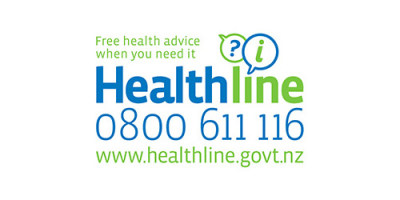COVID-19 vaccination update: Looking towards Group 3
More than 10,000 people have received their first of two doses of the Pfizer BioNTech vaccine in the Nelson Marlborough region.
Approximately 2,440 of these were provided in the last week, as vaccination teams from Nelson Marlborough Health, Te Piki Oranga, Nelson Bays Primary Health Organisation and Marlborough Primary Health Organisation start to increase efforts in line with the national roll-out plan. Of note, 160 kaumatua were vaccinated at a kaumatua clinic on 17 April, and more kaumatua were vaccinated at Waikawa Marae on 15 April. Vaccination has been provided at nine aged care facilities to date, with more scheduled.
Kaumatua and aged care facility residents are Group 2 members. The current focus is on completing vaccination for Group 1 members and offering it to more Group 2 members. This month we started to offer occasional vaccination to Group 3 members who are aged 65 years and older. Vaccines are offered by appointment and when spaces come up, we offer them first to Group 2 members so that the vaccine doesn't expire and is wasted. People can't always come to an appointment at short notice however, which is why we are offering bookings to these Group 3 members.
Over the ANZAC weekend, we will start to offer vaccination to Group 3 members who are aged under 65 and who have underlying health conditions that makes them especially vulnerable to viruses like COVID-19. If this is you, you should be contacted by your GP (doctor) or iwi healthcare provider directly to make a booking. If you think you should be in this group and are not sure if you are, let your GP know.
How many people have been vaccinated to date?
As at 19 April 2021
|
|
NELSON CLINICS |
TASMAN CLINICS |
MARLBOROUGH CLINICS |
TOTALS |
|
|
6,100 (1,346 of these are the second dose) |
1,905 (209 of these are the second dose) |
2,484 (457 of these are the second dose) |
10,489 |
Please note: These are the numbers of people vaccinated at Nelson, Tasman or Marlborough locations. They are not the numbers of Nelson, Tasman or Marlborough residents who have received vaccination – ie, someone who lives in Richmond (Tasman) may have had their vaccine at Nelson Hospital.
When will I get my turn?
What group you're in depends on your age and situation. You can use the Unite against COVID-19 tool to find out what group you're probably in and when you can get a vaccine. The tool is online here.
This one-page overview shows the timing for the different groups. [links to Ministry of Health website]
And this diagram illustrates the timing and the volume of vaccines offered between March and December 2021 [links to Ministry of Health website]
Where can I find information about the vaccine?
There is a lot of useful information available online, eg about vaccine safety, how vaccines are approved and side effects. When looking for information, please prioritise evidence-based websites and social media, and encourage your colleagues, friends and whānau to do so also. The most reliable sources of information, made specifically for consumers, are:
- The Ministry of Health website (and social media)
- The Unite Against COVID-19 website (and social media)
- The Immunisation Advisory Centre website
- Medsafe NZ website
COVID-19 information: How to tell if a website or social media site is credible
There is a lot of information online - it can be difficult to know what’s reliable. Here are five tips to help you make sure what you read online is from a reliable source:
- Understand the publisher. Anyone on the internet can publish anything they like. It's important to understand the goals of that publication. You can often learn about a website's background by reviewing a website's 'About' page.
- Check the sources. The sources of an article are a strong reflection of an article's quality. If the article doesn't list sources, ask yourself - where is this information coming from? If the article does list sources, check them and make sure you believe they are authoritative.
- Check the date. You can usually find this at the top or bottom of the page. Recently written articles are more likely to be trustworthy than outdated articles.
- Check grammar and spelling. Poor grammar and multiple spelling mistakes could be a flag that the information you are reading is not trustworthy.
- Check the site design. Reputable publishers put a lot of effort into making sure their articles are easy to read. If the page you are on has advertising that blocks you from reading the article, or formatting that makes it difficult to read, then those are signs the publication is not trustworthy.





